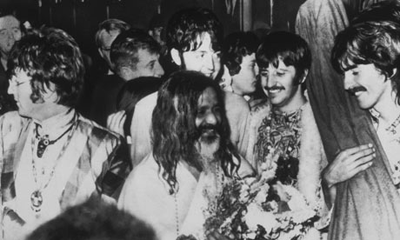
For the second time this year, news that meditation techniques can be an effective treatment for depression has received widespread media coverage. In January, the Mental Health Foundation recommended expanding the provision of mindfulness-based cognitive therapy for everyone at risk of depressive relapse in the UK, based on trials showing an eight-week course of treatment could reduce the risk of relapse by around 50% over 12 months. And now another meditative remedy – the TM (Transcendental Meditation) method, best known for its celebrity devotees such as the Beatles, Mia Farrow, Donovan and David Lynch – has been found to reduce depressive symptoms by around a half among older people.
That practising meditation is good for combating depression is becoming well-established. It also has a range of advantages that make it a particularly useful intervention – the techniques are simple and inexpensive to teach – once learned, they can be practised over a lifetime for ongoing treatment. Not only that, but meditation has benefits for wellbeing that go beyond fighting low mood – an increasing body of evidence suggests it can also form a useful aid to managing physical health issues, especially chronic conditions like pain, heart disease, cancer and HIV. And then there are improvements in other measures of wellbeing – cognitive functioning, attention skills, creativity, life satisfaction, and so on.
But it is important not to overstate the case. Meditation isn’t a miracle cure for anything – in fact, if you approach it as the latest fad that will solve all your problems, you’re probably missing the point. Mindfulness meditation, for example, is a way of “being with” the human condition (and all its difficulties) without reacting against it – its power in dealing with health problems lies in changing our relationship to those issues, rather than in getting rid of them. So, when we’re depressed, we can accept the state of our mind as it is, rather than wishing things were different. Paradoxically, by stopping the self-flagellation of negative thinking, we give ourselves a greater chance of feeling better. Ditto with chronic pain – when we can’t cure ourselves, mindfulness is a way of making friends with our illness, a practical technique which shows us how, in the words of the serenity prayer to “accept the things we cannot change, change the things we can” as well as “the wisdom to know the difference”.
In amongst the media razzmatazz that has surrounded the TM approach, the essential ordinariness of meditation can sometimes get lost. At its most harmless, this means a focus on personalities (impressions of TM are indelibly linked to its flamboyant founder Maharishi Mahesh Yogi, and with the Beatles), but the air of exclusivity around the use of secret mantras, the trademarking of the TM technique and the wealth of the Maharishi Foundation can raise suspicions that detract from scientific findings. It probably doesn’t help that much of the research on TM is carried out at the Maharishi’s own university in Iowa, although academics from other institutions collaborated on and validated the latest studies.
Over the last 30 years, meditation researchers have worked hard to test the effectiveness of ancient wisdom practices, and to make their benefits available to everyone. Despite impressive results, they often face great scepticism because of the religious associations that cling to the practices they are trying to evaluate, even when, as in the case of the mindfulness movement, these are presented in entirely secular terms and in a spirit of open access. That Transcendental Meditation is also valuable as a strategy for wellbeing I do not doubt, though I suspect the benefits are likely be more widespread once the technique has shed its associated baggage. When you’re trying to convince the rational world, sometimes you need a bit less yogic flying and a bit more feet on the ground.
Source : http://www.guardian.co.uk




